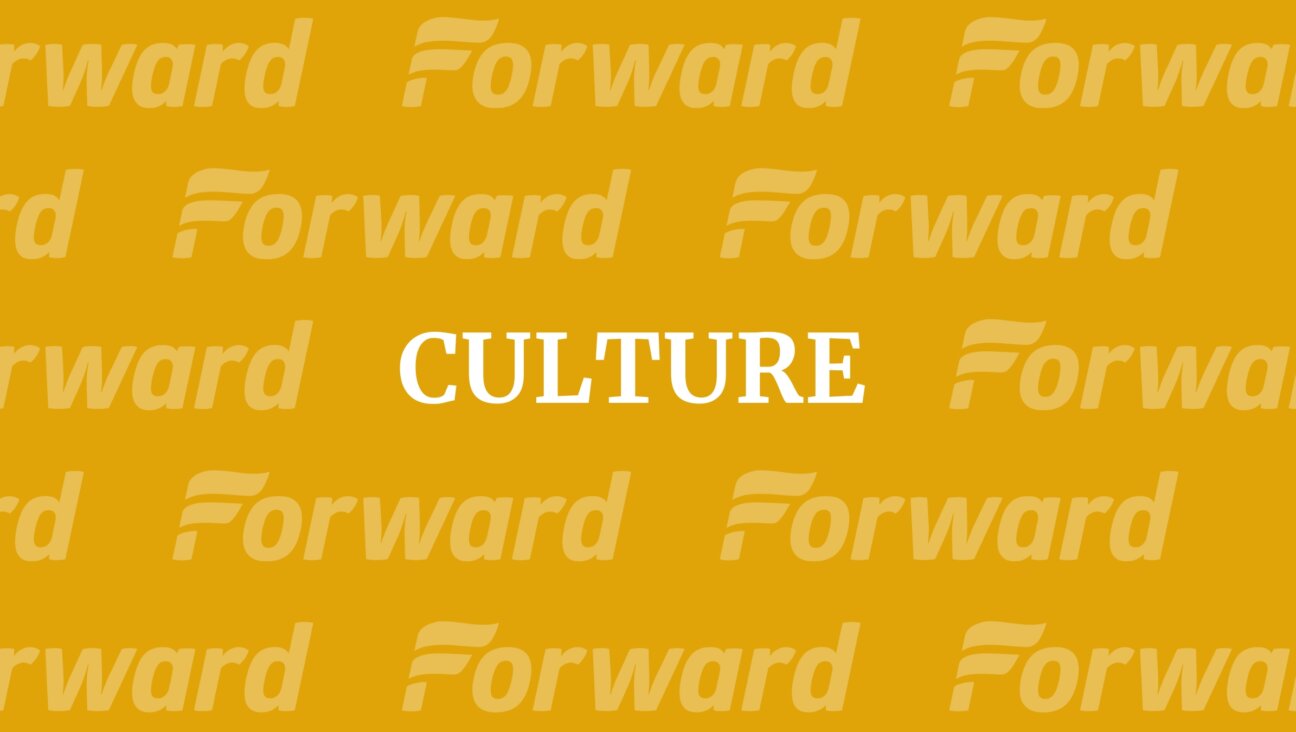Jake Marmer
The Latest
-

The Schmooze -

Books Charles Bernstein Makes Lovely Cacophony in his Latest Collection
● Recalculating By Charles Bernstein University of Chicago Press, 189 pages, $25 As an old joke goes, there are three types of people in the world: schlemiel, the guy who will spill the soup; schlimazel, the one whose lap the soup will get spilt on, and the nudnik, who asks, “What kind of a soup…
-

Books Forward Fives: 2012 in Poetry
In the annual Forward Fives selection we celebrate the year’s cultural output with a series of deliberately eclectic choices in music, performance, exhibitions, books and film. Here we present five of our favorite works of poetry of 2012. Feel free to argue with and add to our selections in the comments. This year, among the…
-

Books Poetics of Riverdale
When we think of great New York poets — Frank O’Hara and Allen Ginsberg, Anne Waldman and Laurie Anderson, among others — what they’ve immortalized and exalted have been the streets and energies of Manhattan or, on rare and less transcendent occasions, Brooklyn. The Bronx, when it did appear, has always been something of the…
-

The Schmooze Guitar Pedals and Goat Strings
Shanir Blumenkranz’s extensive contribution to the world of radical Jewish music can only be compared to Robbie Shakespeare’s formative influence on reggae. Blumenkranz plays on numerous projects issued by the Tzadik label — so many of them, in fact, that his recognizable style of bass playing is virtually inseparable from the sound has come to…
-

The Schmooze Dark Angels of the Jewish Subconscious
Unlike their pudgy, cherubic, church-tending counterparts, in Jewish mythology angels are not what you’d call angelic. Ominous and conflicted, with a penchant for irony and obscure turns of phrase, they are messages from the personal and collective subconscious for us to wrestle with. These angels create the parameters of our formative and deformative moments. Perhaps…
-
Life The Poetics of Early Fatherhood
More diligent and disciplined parents, tracing the first months of their kids’ lives, fill out pretty diaries, recording the minute progress, saving bibs, pasting photographs — in short, getting started on the great family blackmail file. We’ve made a few feeble attempts in that direction, too, but the efforts weren’t exactly sustained. Our son’s first…
-

The Schmooze Talia Lavin’s Poems for Passover
The irony of Pesach lies in the juxtaposition of the formative freedom narrative with the fraught mythic lore that goes along with its celebration. Today on The Arty Semite we’re featuring two poems by Talia Lavin that address this very juxtaposition through the lens of the contemporary Israel. The first poem tackles the subject head-on:…
Most Popular
- 1

News Meet the Jews who helped elect Zohran Mamdani
- 2

Fast Forward Calling itself ‘MechaHitler,’ Elon Musk’s AI tool spreads antisemitic conspiracies
- 3

Fast Forward Josh Shapiro’s Judaism was not why Kamala Harris snubbed him, new book claims
- 4

Fast Forward For the Jewish community in central Texas, deadly flooding hits close to home
In Case You Missed It
-

Opinion I’m a Zionist Democrat. Mamdani has me asking if I must choose between my ideals and identity
-

Fast Forward A cholent crisis? Rabbi’s ruling against Shabbat stew on Thursday nights briefly roils Israel
-

Fast Forward In a Polish town where locals burned Jews alive in 1941, new plaques deny complicity with Nazis
-

Fast Forward 1 in 4 Americans believe recent attacks on Jews were ‘understandable,’ ADL survey finds
-
Shop the Forward Store
100% of profits support our journalism







